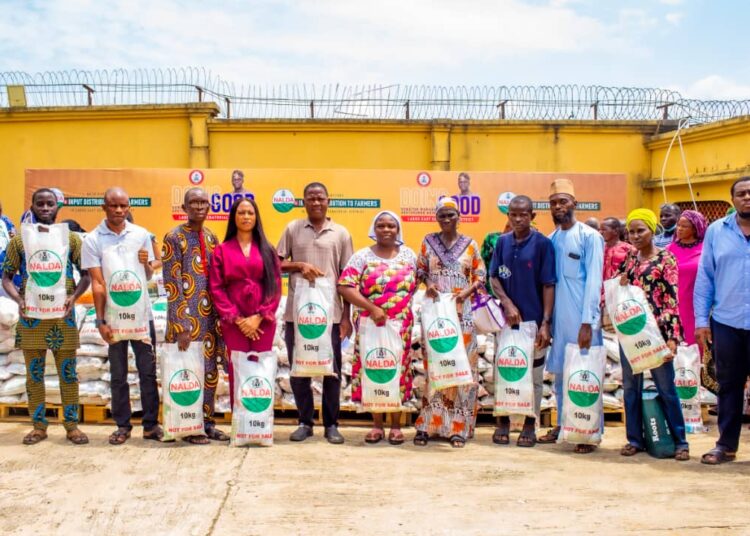The National Agricultural Land Development Authority (NALDA) has distributed agricultural inputs to 1,000 farmers in Nasarawa and Lagos States.
The initiative was part of a broader effort to enhance crop yields and increase food production nationwide.
The empowerment programme also targeted accredited farmers who received NALDA-branded bags of maize seeds for Lagos State farmers and beans seeds for Nasarawa State farmers, including herbicides, pesticides, fungicides and fertilizers with capacity to boost yield up to six tons of produce per farmer.
The distribution was tailored to each state’s agricultural specialisation, with beneficiary biometrics captured to ensure that the inputs reach the genuine farmers.
In Lagos, 500 farmers from the East Senatorial District, including Epe, Ibeju/Lekki, Ikorodu, Agbowa, and Imota, received the inputs with partnership from Senator Mikail Adetokunbo Abiru.
In Nasarawa State, 500 farmers were empowered during a distribution event at the Emir’s Palace in Lafia where, Emir of Lafia and chairman of the Nasarawa State Council of Chiefs, retired Justice Sidi Muhammed Bage, lauded the federal government’s initiative and urged beneficiaries to seize the opportunity to boost the state’s economy.
NALDA’s executive-secretary, Prince Paul Ikone, represented by the agency’s ICT director, Chima Onuha, highlighted that the initiative aligned with President Bola Tinubu’s Renewed Hope Agenda, focusing on agriculture and food security, stating that the distribution effort was in response to the declaration of a state of emergency on food security.
He stated that the initiative also aimed to support the President’s efforts by mitigating the impact of high living costs and ensuring significant food production increases over the next few months.
He added that NALDA’s continuous empowerment programme intends to encourage more Nigerians to engage in farming, while fostering self-sufficiency and enhancing food security for the country’s growing population.
One of the beneficiaries, Owolabi Odulaja, expressed gratitude, noting that the support would significantly help tackle poverty.
It is expected that in the next three to four months, the outputs from the programme would help in the significant drop in the cost of food items in the market.





